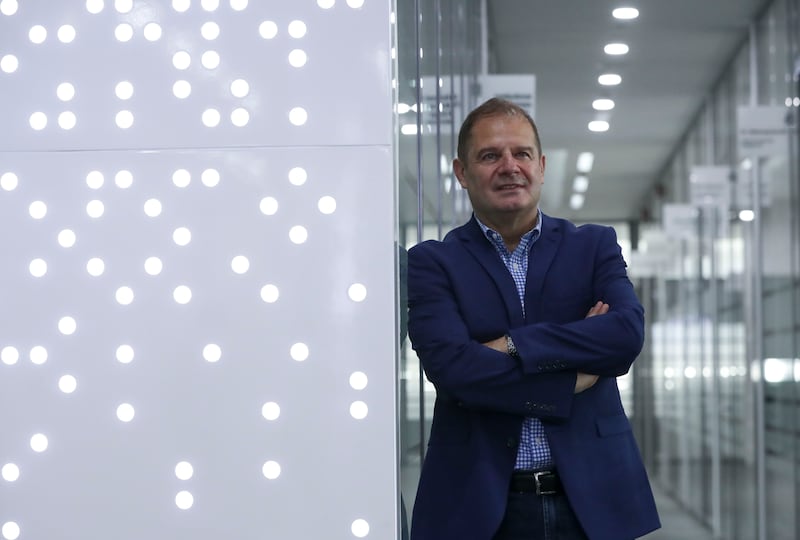The new provost at Abu Dhabi’s pioneering artificial intelligence university is putting together a playbook to compete with the world’s top institutions of higher learning.
Prof Fakhreddine Karray joined Mohamed bin Zayed University of Artificial Intelligence, or MBZUAI, this month. His list of priorities is short but ambitious: recruit world-class faculty, produce research with commercial applications and promote an entrepreneurial culture among students.
“We are aiming to have a calibre of excellence that is matched by some of the top universities around the world,” Prof Karray told The National.
But the opportunity is not only to build another prestigious academic programme, he said. Abu Dhabi has a unique role to fill as a regional leader in the field of AI, and is the only graduate-level university in the world singularly developing AI tools.
With more than 100 graduate degree programmes in AI globally, the technology’s development and education centres are largely concentrated in North America, China and the UK.
“We aim to make MBZUAI one of the icons in the field of AI in this particular region through publishing research ... and also by generating prototypes [and] start-ups out of the ideas of the professors and the students,” Prof Karray said.
“We are reaching out to some of the top scholars in the field of AI from all over the world to come here to join us to work with us as visiting professors or as affiliated professors, or to hire them outright,” he said. Some of them are former colleagues of his and of university president Eric Xing.
“Our aim is for quality, quality, quality for faculty and for students ... we are focusing on faculty members’ excellence, generous funding from the government and outstanding students that could help support what we want to establish here,” he said.
“That whole ecosystem will make MBZUAI unique in its outreach to the society, to the economy and to the academic world as well.”
A renowned researcher of self-aware machines and autonomous systems, in his previous post Prof Karray was the founding co-director of the Waterloo Artificial Intelligence Institute at the University of Waterloo in Canada.
The University of Waterloo has the world’s biggest co-op programme, short for co-operative education, which matches classroom theory with hands-on learning through full-time employment prior to graduation. Prof Karray, who is Tunisian, said he wants to “import” those practices to the region, to build partnerships with corporations and governments and provide real-world experience to students.
Some of Prof Karray’s most recent research projects include autonomous detection systems for distracted driving, remote monitoring of elderly patients through home-based systems of sensors and forecasting price fluctuations in supply chains for food. He is eager to replicate and expand upon that work in Abu Dhabi.
AI is expected to add 14 per cent to the world’s gross domestic product by 2030, equivalent to $15.7 trillion (Dh57.7tn), according to business consultancy PwC. Experts estimate that AI’s contribution to the UAE economy will match the global increase of 14 per cent – the largest GDP share in the Middle East – in the same time frame. The country ranks 19th worldwide on the government AI readiness index, first in the region, according to Oxford Insights.
The university’s curriculum is currently focused on three areas: machine learning, which provides the mathematical foundation of AI, and computer vision, which takes machine learning a step further to identify and analyse pictures and videos. The third course, natural-language processing, was added this semester, with students developing tools to allow computers to communicate with people using everyday language.
Prof Karray said in coming years the university will expand its offerings to include robotics in health care and energy, aimed at applications that can benefit the UAE.
As AI becomes more sophisticated, there is growing concern over bias and ethical grey areas in its development. Increasingly, governments, research bodies and companies are laying out principles to inform its development and responsible use.
Prof Karray said it was still too soon to formalise AI ethical frameworks. He plans to build an advisory board to take on ethical concerns about the university's research, privacy, and access to and use of data. He said the board would operate on a project by project basis.







